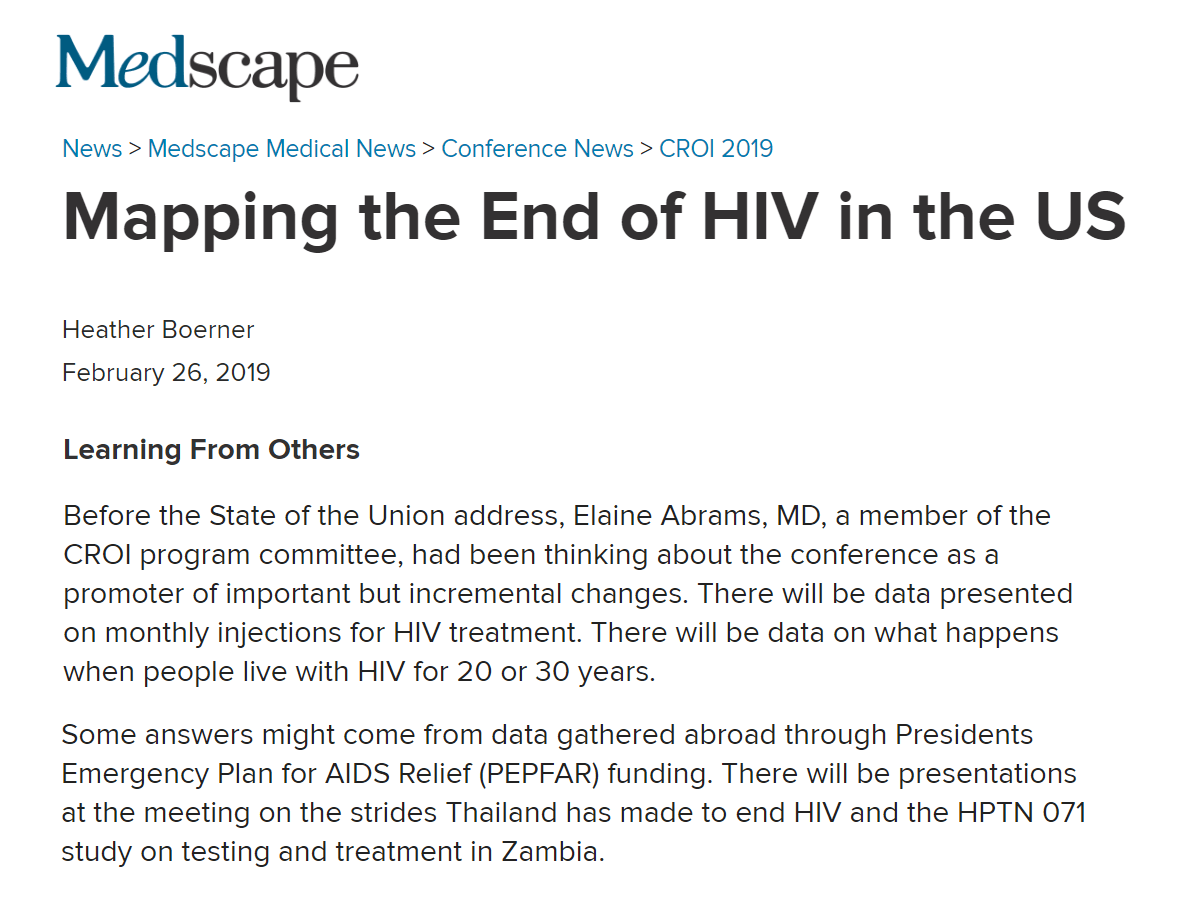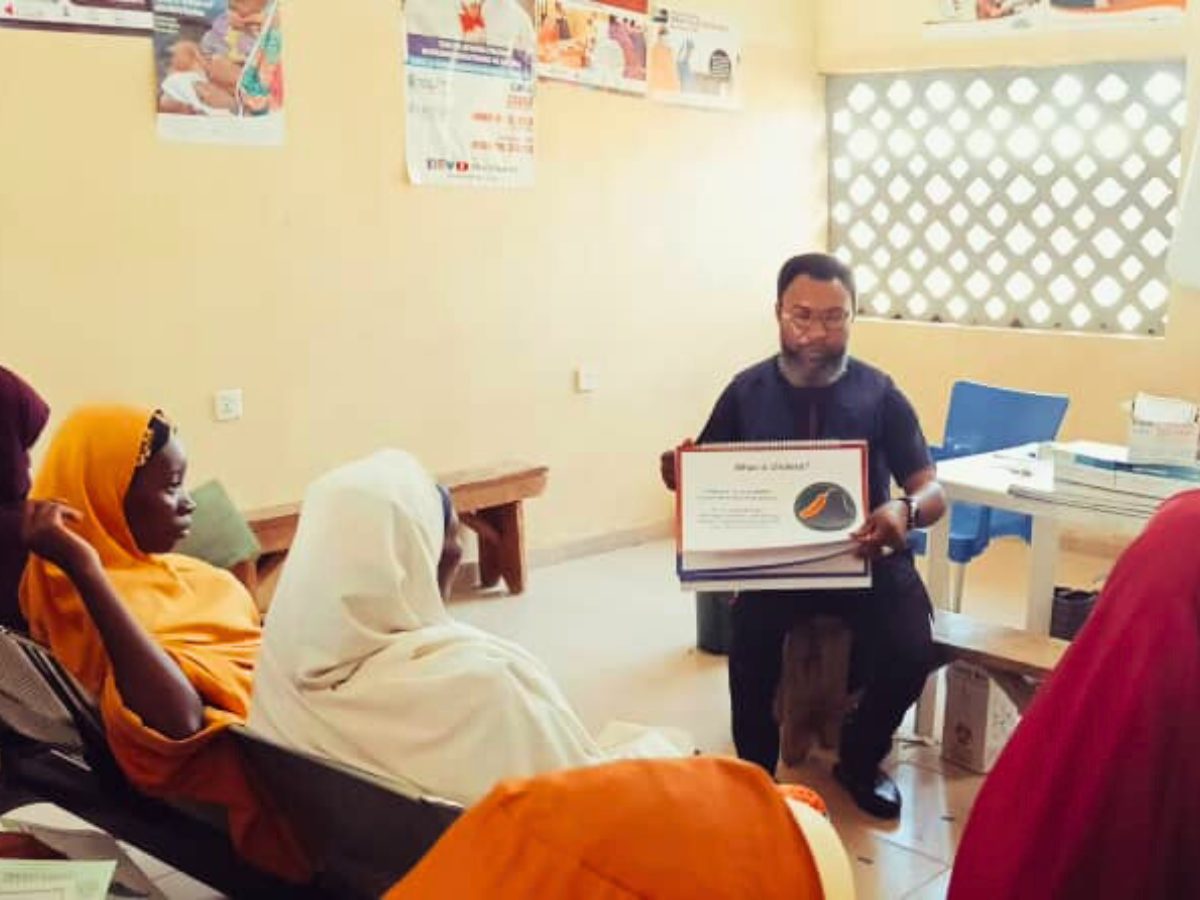Learning From Others
Before the State of the Union address, Elaine Abrams, MD, a member of the CROI program committee, had been thinking about the conference as a promoter of important but incremental changes. There will be data presented on monthly injections for HIV treatment. There will be data on what happens when people live with HIV for 20 or 30 years.
Since the State of the Union address, though, she said the conference feels like it could be “a platform to bring together all this collaboration and learning and understanding, and then address some of the really tough issues that haven’t had the funding or targeted attention to address.”
In the United States, progress was being made in the elimination of HIV, “and then we just kind of left it,” Abrams pointed out.
“We’ve eliminated mother-to-child transmission of HIV, or we’ve come close, and yet the epidemic persists, particularly in young men who have sex with men, particularly of color, or in groups where access to care or retention in care remain quite difficult,” she said.
Increased funding of implementation science could teach physicians “to successfully engage populations we have not been able to attend to successfully,” she added.
Some answers might come from data gathered abroad through Presidents Emergency Plan for AIDS Relief (PEPFAR) funding. There will be presentations at the meeting on the strides Thailand has made to end HIV and the HPTN 071 study on testing and treatment in Zambia.
In particular, the story of how Thailand reduced its HIV incidence “is a very nice story to inform what we do in, say, Alabama,” said Abrams.
Read the full article on Medscape (login may be required)






